5 Essential Vitamins and Supplements for Strong & Healthy Bones

Our body needs vitamins to survive and stay fit and healthy. Now, there are 13 vital vitamins that the human body requires. All of them help our bodies grow and make each part work accordingly. While some vitamins work to resist infections, strengthen neurological functions, and regulate blood coagulation, others focus on bone health.
Let’s find out which vitamin is good for bones from these essential vitamins. But before that, let us discuss the importance of vitamins in maintaining bone health.

Table of Contents

Importance of Vitamins for Bone Health
As we grow older, we start losing bone density. This leads to osteoporosis, a disease that weakens the bones and often causes fractures. These fractures quite often cause disabilities and are widely found affecting millions of people.
A balanced diet, comprising vitamins D, A, K, C and B12 is of utmost importance for bone formation. A regular and adequate supply of other nutrients, including calcium, magnesium, phosphorus, potassium, fluoride, manganese, iron, zinc, copper, and boron, also aids in ensuring bone health.
They enhance bone mass and strength, influence bone-building cells, form collagen, increase bone mineral density (BMD), maintain bone metabolism, and prevent unwanted fractures.
Benefits of Different Vitamins on Bone Health
If you are wondering which vitamin is good for bones, there is more than one. Different vitamins have different functions when it comes to maintaining bone health. Let us discuss the various ways these vitamins are beneficial for bone metabolism.
Benefits of Vitamin D
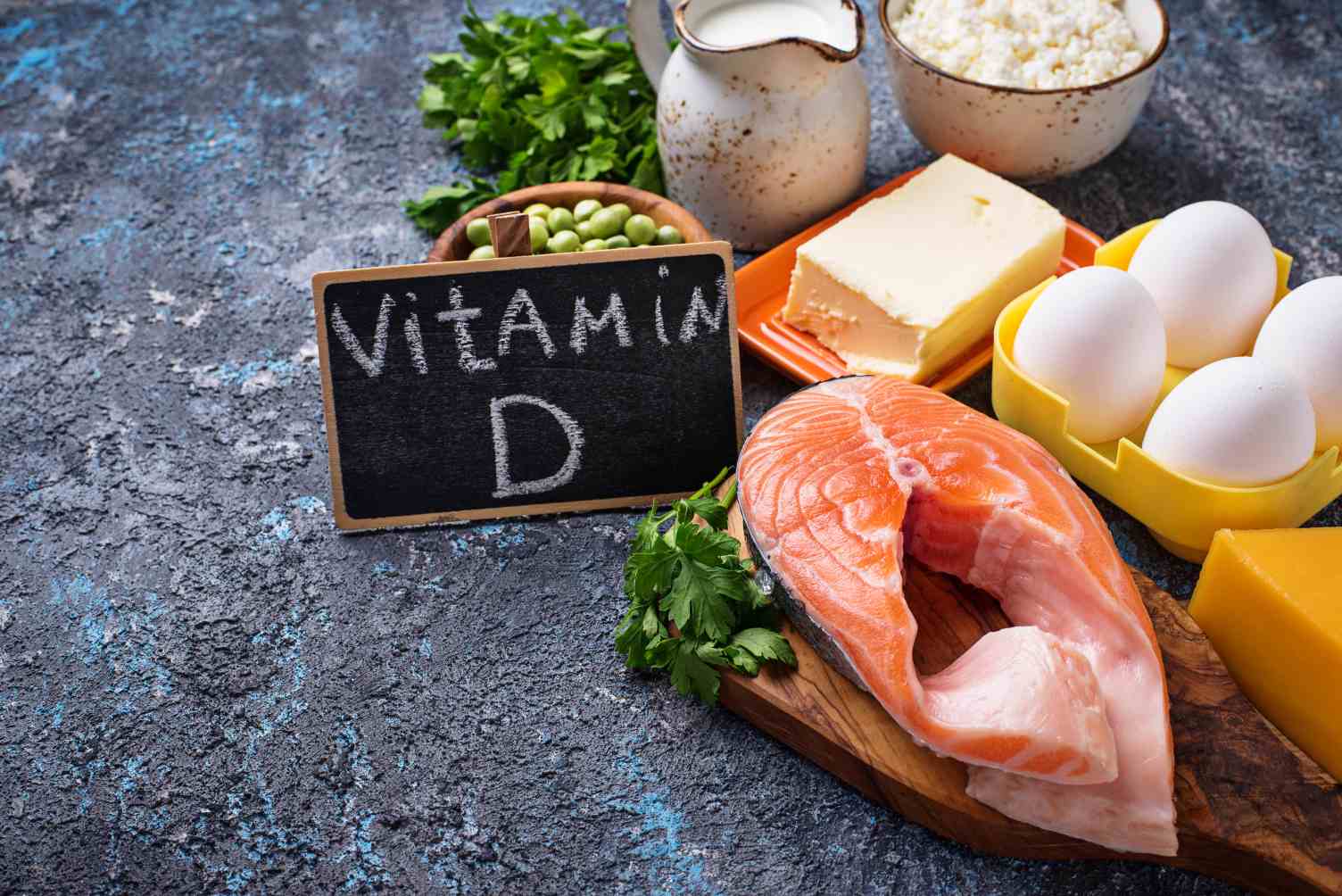
The most commonly known answer to which vitamin makes your bones strong is vitamin D.
It regulates the amount of calcium and phosphate in our bodies to keep bones, teeth and muscles healthy. Lack of this vitamin causes bone deformities in children, rickets, and osteomalacia in adults.
How Much Vitamin D Is Required to Maintain Good Bone Health?
The amount of vitamins required by our bodies varies from person to person. Therefore, it is imperative to consult a professional to learn the correct dietary proportions of each vitamin.
Vitamin D strengthens our bones by helping our bodies absorb calcium to build strong bones and keep them healthy. Children require vitamin D to strengthen their bones, and adults need it to maintain the strength and health of bones. [1]
|
Age (Both Men and Women) |
Recommended Amount (Micrograms) |
|
Under 50 years |
Up to 12.5 mcg every day |
|
50 years and above |
Up to 25 mcg every day |
Sources of Vitamin D
- Sunlight - Our body reacts with sunlight to make vitamin D, which is stored in the adipose or fat tissues. However, the amount of vitamin D production solely depends on the time of the day, season, latitude, skin type and pigmentation, age, among other factors.
- Food - Unlike sunlight, food sources do not contain vitamin D in abundant quantities. It is found in some fatty fish such as mackerel, salmon and tuna. Other sources are milk, orange, soy milk and fortified cereals.
Benefits of Vitamin A
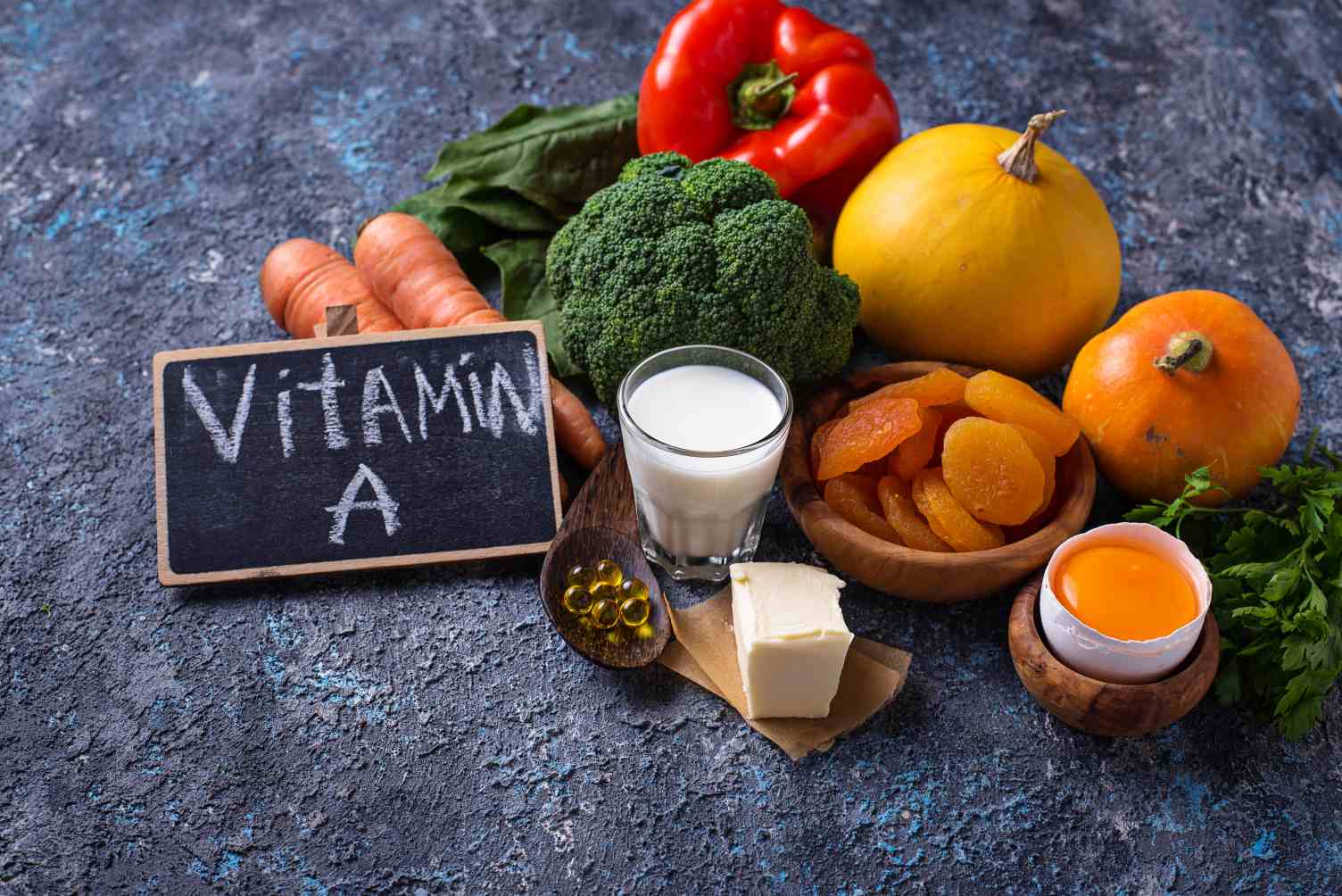
When it comes to the role of vitamin A in bone formation, it influences both the bone-building cells called osteoblasts and bone-resorbing cells called osteoclasts.
Note: Several clinical research state that too much vitamin A leads to lower bone density and fractures.
How Much Vitamin A Do We Require?
Consumption of adequate vitamin A is essential for proper bone development. Therefore, if you ever think of which vitamin is good for bones, vitamin A is one. A recent meta-analysis of observational studies reports that people who include the highest amounts of vitamin A in their daily diet are 6% less likely to experience a risk of fractures. [2]
|
Age (Both Men and Women) |
Recommended Amount (Micrograms) |
|
Adult men |
900 mcg |
|
Adult women |
700 mcg |
Sources of Vitamin A
1. Retinol
- Cheese
- Eggs
- Fortified low-fat spreads
- Milk
- Oily fish
- Liver
2. Beta-carotene
- Sweet potatoes
- Mango
- Papaya
- Spinach
- Apricots
- Carrots
- Red peppers
Note: Consult a professional to understand which vitamin is good for bones.
Benefits of Vitamin B12
Vitamin B12 is involved in inhibiting the mechanisms of bone fragility. It modulates collagen formation. Some studies explain that this vitamin alters osteoblasts’ metabolism. Deterioration of B12 levels in our bodies reduces bone density and makes them fracture-prone.
Benefits of Vitamin B12
Insufficient vitamin B12 increases the risk of osteoporosis and leads to hip fracture. Therefore, if you have ever wondered if low vitamin levels can cause bone fractures, the answer is yes.
Refer to the following table to understand the age-wise requirement of dietary vitamin B12. [3]
|
Age (Both Men and Women) |
Recommended Amount (Micrograms) |
|
Infants (0 to 6 months) |
0.4 mcg |
|
Infants (7 to 12 months) |
0.5 mcg |
|
Infants (7 to 12 months) |
0.5 mcg |
|
Children (1 to 3 years) |
0.9 mcg |
|
Children (4 to 8 years) |
1.2 mcg |
|
Children (9 to 13 years) |
1.8 mcg |
|
Teens (14 to 18 years) and adults |
2.4 mcg |
|
Pregnant and breastfeeding women |
2.6 to 2.8 mcg |
Sources of Vitamin B12
Cobalamin is not abundantly found in fruits, vegetables and grains. Some of its sources are-
- Meat
- Milk
- Fish
- Eggs
- Cheese etc.
Benefits of Vitamin C

This water-soluble vitamin plays a crucial role in collagen formation. Studies have linked higher levels of vitamin C with greater bone density. Therefore, this vitamin is required for bone formation too.
How Much Vitamin C Do We Require?
Vitamin C covers several vital functions such as protecting cells, maintaining healthy skin, blood vessels, cartilage and bones. Look at the table below. [4]
|
Age (Both Men and Women) |
Recommended Amount (Micrograms) |
|
Kids (1 to 3 years) |
15 mcg |
|
Kids (4 to 8 years) |
25 mcg |
|
Adolescents (9 to 13 years) |
45 mcg |
|
Teens (14 to 18 years) |
65 to 75 mcg |
|
Adults (women of 19 years and above) |
75 mcg |
|
Pregnant and breastfeeding women (above 19 years) |
85 to 120 mcg |
|
Adults (men of 19 years and above) |
90 mcg |
Sources of Vitamin C
- Green and red pepper
- Kiwi
- Orange
- Brussels sprouts
- Broccoli
- Strawberries
Benefits of Vitamin K
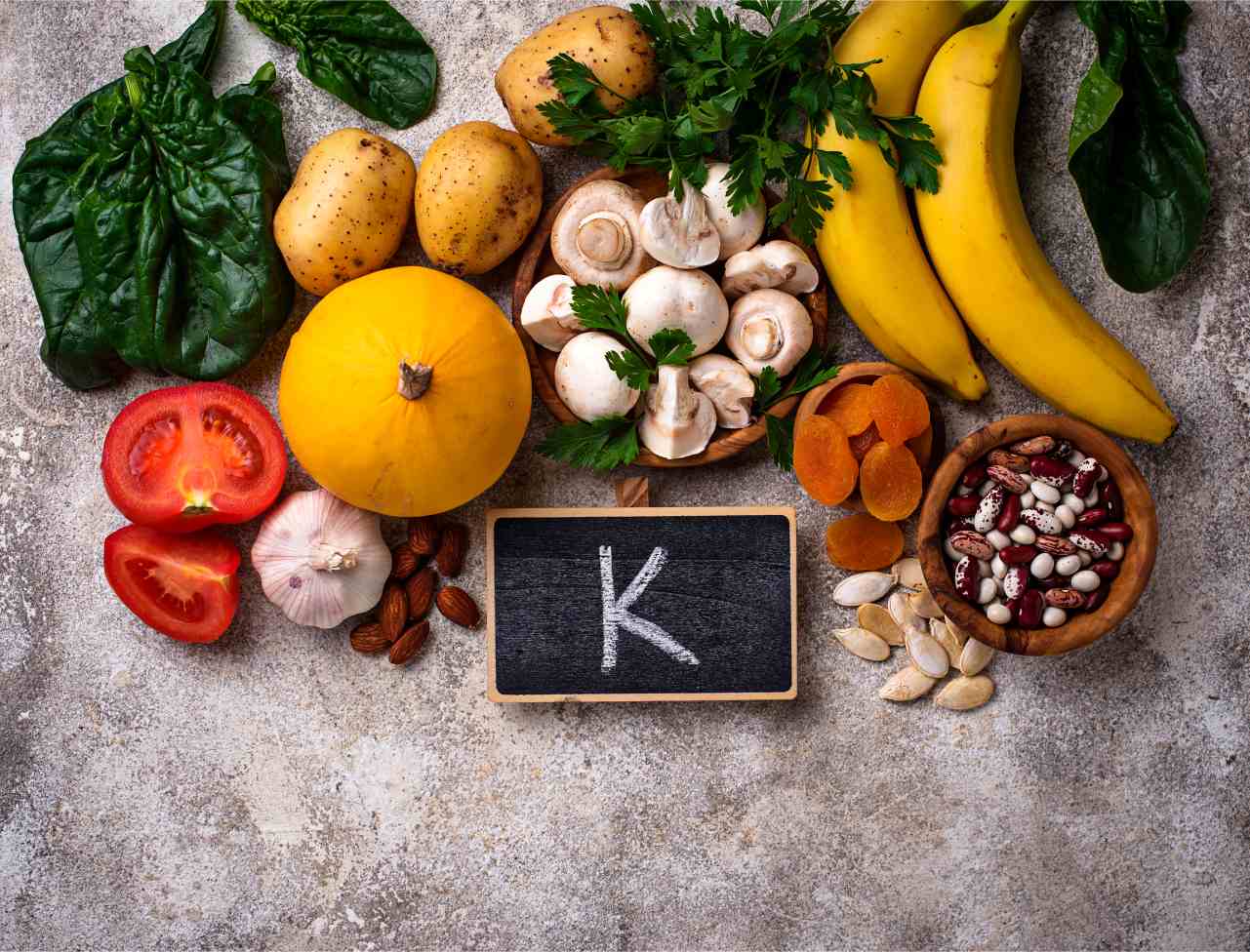
Vitamin K enhances bone mineral density in people suffering from osteoporosis and significantly reduces the chances of fractures. A significant number of studies have proved that low dietary intake of vitamin K leads to a higher risk of fracture and lower BMD.
How Much Vitamin K Do We Require?
Besides blood coagulation, vitamin K is required for healthy bones too. Check the following table for the recommended level of intake of vitamin K. [5]
|
Age (Both Men and Women) |
Recommended Amount (Micrograms) |
|
Kids (1 to 3 years) |
15 mcg |
|
Infants (between 0 to 6 months) |
2 mcg |
|
Infants (between 7 to 12 months) |
2.5 mcg |
|
Children (between 1 to 3 years) |
30 mcg |
|
Children (between 4 to 8 years) |
55 mcg |
|
Children (between 9 to 13 years) |
60 mcg |
|
Girls (between 14 to 18 years) |
75 mcg |
|
Boys (between 14 to 18 years) |
75 mcg |
|
Women (19 years+) |
90 mcg |
|
Pregnant or breastfeeding women (19 years+) |
90 mcg |
|
Men (19 years+) |
120 mcg |
Sources of Vitamin K
1. Vegetables
- Kale
- Spinach
- Parsley
- Swiss chards
- Beet greens
2. Fruits
- Blackberries
- Grapes
- Kiwi
- Avocado
- Tomatoes
3. Oil
- Canola
- Sesame
- Sunflower
4. Meat
- Chicken
- Beef liver
- Pork
All of these 5 vitamins play different roles to maintain our bone health.
Bone Diseases Due to Lack of Vitamin
Inadequate intake of essential vitamins can lead to various conditions that compromise bone density and strength. Below are some common bone diseases caused by the insufficiency of vitamins.
1. Rickets
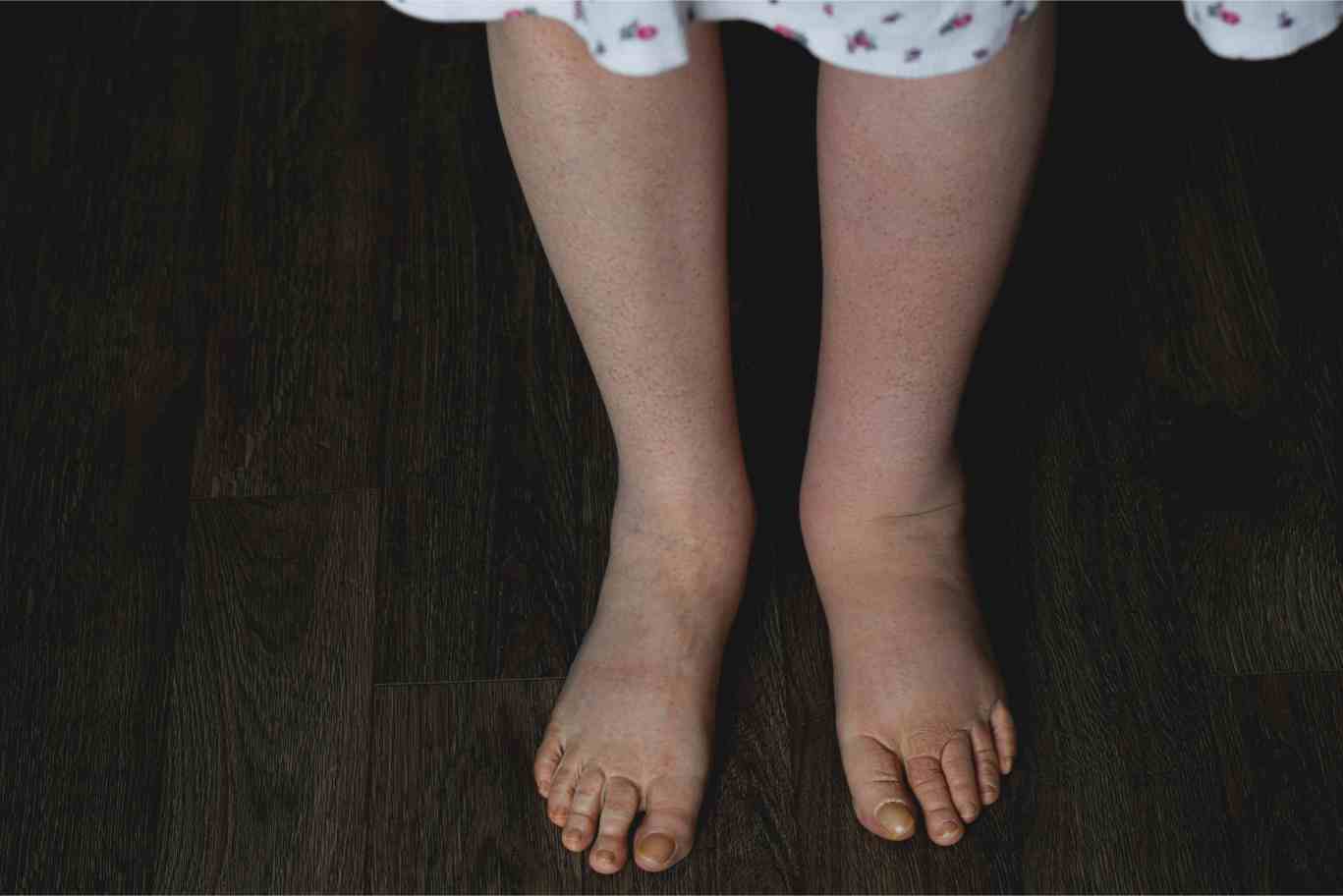
Children, due to vitamin D deficiency, suffer from rickets which leads to softening and weakening of bones.
Signs and Symptoms
- Delay in growth and motors skills
- Pain in the spine, pelvis and legs
- Weak muscle
- Bowed legs
- Knock knees
- Thickening of wrist and ankles
- Projection of breastbone
2. Osteomalacia
People suffering from osteomalacia experience softening of bones, leading to fractures.
Signs and Symptoms
- Pain in bones and joints
- Pain in muscle
- Bones break easily (especially in the hips, lower back and feet)
- Difficulty in walking
- Muscle cramps
3. Osteoporosis
Osteoporosis is when bones become brittle and fragile due to a loss of tissue and essential vitamins.
Signs and Symptoms
- Pain in the back, frequently caused by fractured or collapsed vertebrae
- Progressive reduction in height
- Drooping or bent forward body posture
- Bones that break easily as compared to normal bone strength.
4. Enhanced Probability of Fracture
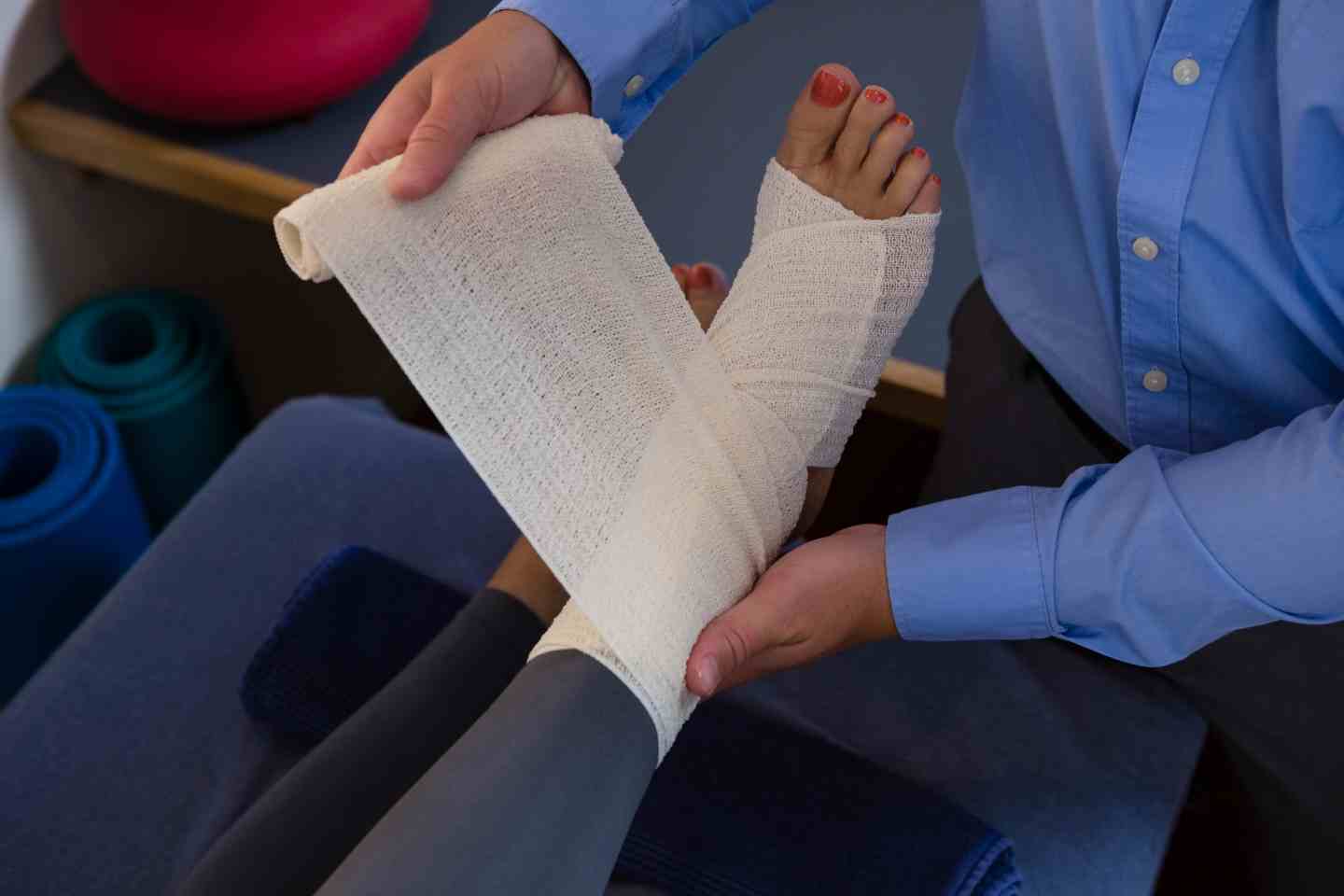
Increased fracture risk is linked to vitamin K deficiency, making bones more susceptible to breaks from minor falls or injuries.
Signs and Symptoms
- Regular bone fractures from minor falls or injuries
- Fractures take a long time to heal.
- Soft tissue bleeding and bruising occur easily.
- Reduced bone density evident on x-rays.
5. Hypocalcemia

Hypocalcemia is characterised by low levels of calcium in the blood, often due to deficiencies in vitamin D and calcium.
Signs and symptoms
- Muscle cramps and spasms, mostly hands and feet muscles involved.
- Numbness and tingling in extremities & around the mouth area.
- Fatigue is a feeling of tiredness.
- Irregular heartbeats
- Seizures occur in severe cases.
Dietary and Lifestyle Tips for Strong Bones
In our advanced years, we lose bone density naturally, so it is crucial to cultivate behaviours that promote strong bones. Here are a few dietary and lifestyle recommendations that can help make your bones stronger.
- Balanced Diet: Incorporating calcium-rich, vitamin D-enriched edibles and vitamin K-spiked veggies into your meals keeps your bones in good shape. These minerals can be found in dairy products, green leafy vegetables, nuts, and fish.
- Regular Exercise: Engaging in regular physical activity, particularly weight-bearing and resistance exercises, is beneficial for maintaining bone density. For instance, activities like walking or jogging can contribute to stronger bones.
- Adequate Hydration: Our bodies, including our bones, need water to function optimally. Water helps transport nutrients and waste materials between cells. Therefore, optimal hydration requires a daily intake of enough liquids.
- UV Protection: When adequately exposed to sunlight, the body produces vitamin D, which helps calcium absorption into the bones and bone health. You should aim for moderate doses of sunlight to avoid the harmful effects of UV rays.
- Avoid Smoking and Alcohol: Smoking diminishes the blood supply to bones, whereas excess alcohol can disrupt the body's balance of calcium. By avoiding these, you can keep your bones stronger for a long time.
Supplements and Their Role in Preventing Bone Diseases
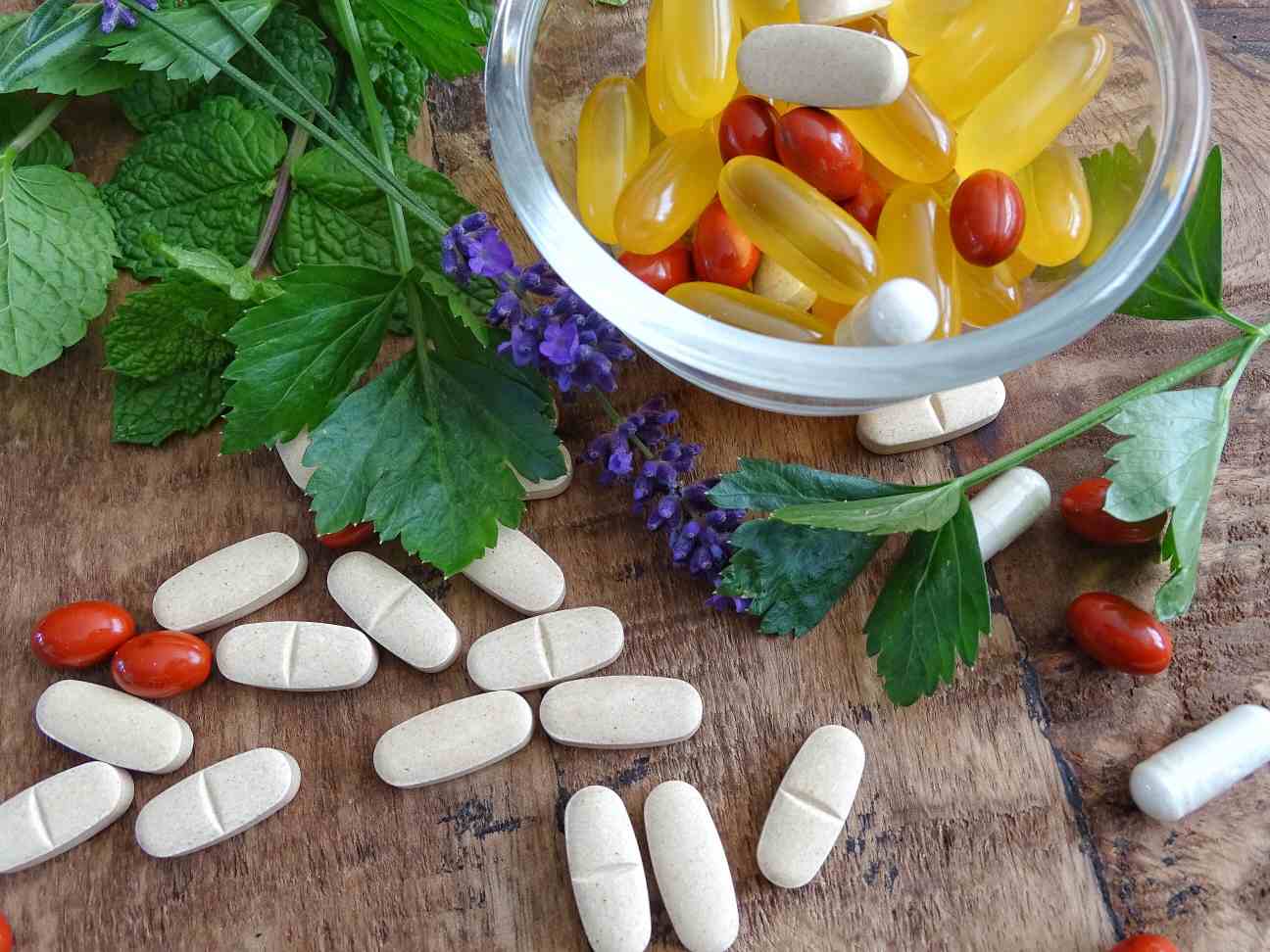
In some cases, some individuals may require supplementation because their diet alone cannot meet all the human body's nutritional requirements. Limited access to sunlight like in certain medical conditions, and specific dietary restrictions call for the use of supplementations.
Your nutritional requirements will determine the correct choice. You should choose supplements that contain the right amounts of vitamins and minerals. Calcium, vitamin D, vitamin K, and magnesium are joint supplements for bone health.
Though helpful, supplements must be used correctly to avoid potential risks and side effects. There is a limit to how much specific vitamins and minerals our bodies can tolerate before toxicities occur, which may harm health.
Always adhere to recommended dosages and talk with your healthcare provider before starting any new supplement regimen.
Regular intake of food sources rich in these vitamins will boost bone health and prevent bone diseases. However, it is advisable to consult a professional nutritionist to determine which vitamins are good for bones and the right amount for your age, weight, and other factors. Remember, a healthy, balanced diet along with exercise is the key to maintaining bone health.













